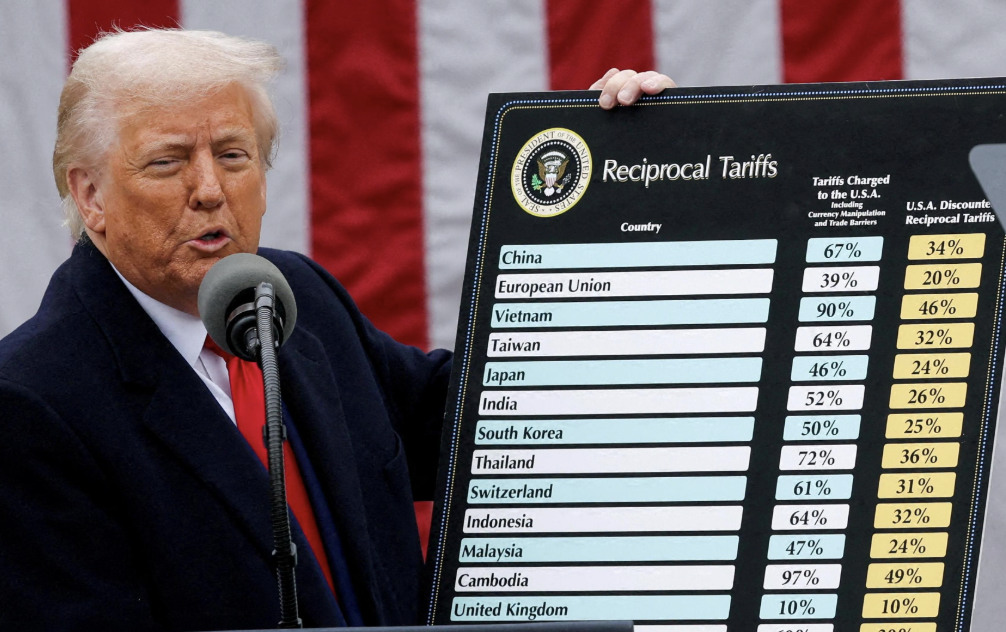Trump’s Tariffs May Boost Türkiye’s Chemical Industry in U.S. Market
 trump
trump
U.S. President Donald Trump’s new reciprocal tariff regime could give Türkiye’s chemical sector a competitive edge in the American market, according to Adil Pelister, Chairman of the Istanbul Chemicals and Chemical Products Exporters’ Association (IKMIB).
Pelister emphasized that Türkiye’s inclusion in the lowest tariff tier—10%—places it in a favorable position relative to other major exporting countries facing significantly steeper rates.
“Compared to the tariffs imposed on other countries, our 10% placement offers a competitive advantage. This could increase the visibility and demand for Turkish chemical exports in the U.S.,” Pelister stated.
Türkiye in Lowest Tariff Bracket Alongside Select Countries
On April 2, 2025, Trump signed an executive order imposing new import tariffs ranging from 10% to 50% on 185 countries. Some of the notable hikes include:
-
34% on China
-
20% on the EU
-
46% on Vietnam
-
24% on Japan
-
26% on India
-
25% on South Korea
-
17% on Israel
By contrast, Türkiye, along with the UK, Brazil, Australia, and the UAE, faces only a 10% tariff—the lowest bracket under the new policy.
Strategic Sectors Poised to Benefit
Türkiye’s chemical industry, especially in intermediate goods such as:
-
synthetic fibers
-
dyes
-
fertilizers
-
soda ash and cleaning agents
...is expected to benefit from the shift in global trade dynamics.
With EU and Chinese chemical products likely to become more expensive in the U.S., American importers may look for cost-effective alternatives, including Türkiye.
“The high tariffs on China open a door for Türkiye to position itself as a reliable alternative supplier,” Pelister said, adding that value-added, high-tech production will be key to long-term competitiveness.
European Market May Become More Competitive
While the U.S. market presents new opportunities, Türkiye’s chemical exporters may face challenges in the EU. If the EU's exports to the U.S. drop due to tariffs, more products could stay within the European internal market, increasing supply and driving down prices.
This could heighten competition for Turkish exporters in segments like:
-
plastic packaging
-
rubber products
-
textiles and cleaning supplies
However, lower EU prices may reduce input costs, offering short-term advantages for domestic Turkish manufacturers.
Currency Trends and Customs Union Modernization Are Key Factors
Pelister also pointed to currency fluctuations as a factor shaping trade dynamics:
“A weakening U.S. dollar and a strengthening euro would improve Türkiye’s export performance to the EU, where most of our chemical exports are sent.”
He stressed the importance of:
-
Modernizing the EU-Türkiye Customs Union
-
Securing visa liberalization for exporters
-
Signing new Free Trade Agreements (FTAs)
...to further integrate Türkiye into global supply chains.
Sector Growth Targets and Geopolitical Watch
Türkiye’s chemical industry was the country’s second-largest export sector in 2024, generating $30.8 billion in exports. The target for 2025 is $35 billion, with the U.S. among the top 10 destinations.
“With stronger investment in high-demand chemical products, our trade volume with the U.S. can grow significantly,” Pelister noted.
He also warned of potential geopolitical and economic risks, including:
-
China’s upcoming 34% retaliatory tariff on U.S. goods (effective April 10)
-
Possible countermeasures from the EU and others
These developments could fuel global inflation and lead to a slowdown in international trade, he cautioned.


